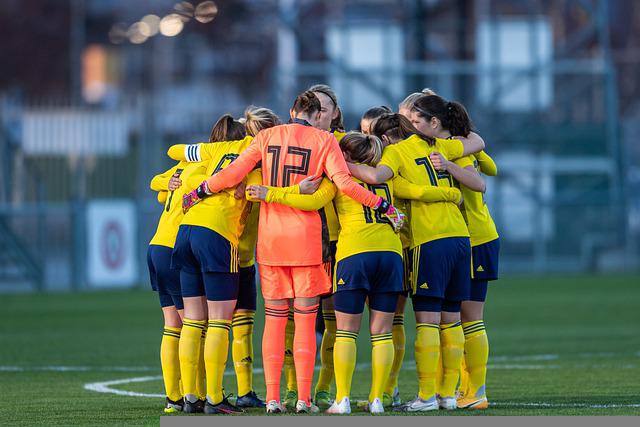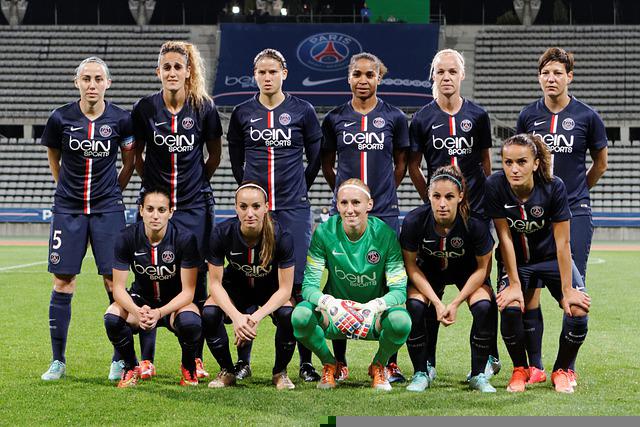On Wednesday 6th July, after a delay of a year due to the Covid-19 pandemic, the Women’s European Soccer Championships 2021 (now renamed to 2022), will take place across ten venues in eight towns and cities across the UK.
The tournament will feature 16 of the best female European football teams battling it out for the honour to be named the champions of the continent, following in the footsteps of the Dutch team that were the winners of the 2017 trophy.
This latest festival of football is the second big European Championships to be contested in England in successive years, after a number of games were held in the country in the men’s Euro 2020 tournament which was played last summer (where we correctly backed Italy to win the tournament at 8/1)
In this article, we are going to preview the event, as well as giving you the latest odds from bet365 Sport, as well as a number of the top betting tips for the tournament.
Open Account Offer:
Bet £10 Get £30 in Free Bets
Min Deposit: £5 – Expiry: 30 days – Min Odds: 1/5 (1.20)
New Customers only. Bet £10* & Get £30* in Free Bets. Sign up, deposit between £5* and £10* to your account and bet365 will give you three times that value in Free Bets when you place qualifying bets to the same value and they are settled. Free Bets are paid as Bet Credits. Min odds/bet and payment method exclusions apply. Returns exclude Bet Credits stake. T&Cs, time limits & exclusions apply. The bonus code BET247 can be used during registration, but does not change the offer amount in any way. Registration Required.
But let’s begin first by taking a look at some key information for the tournament as the women’s event is slightly different to the men’s.

- Dates – 6th – 31st July
- Venue – England (10 venues in 8 host cities)
- Holders – Netherlands
- Teams Competing – 16
- Squad Size – 23 players
- VAR – Yes
- Prize Pool – £16 million
- Tie Breaker Order – Head-to-Head, Goal Difference, Goals Scored in Head to Head Games between tied teams
- Games Shown Live – BBC TV
- Officials – 13 Referees, 25 Assistant Referees, 15 VAR Officials, 2 Support Officials.
- Host Cities – Wigan & Leigh, Manchester (2 stadia), Sheffield, Southampton, Brighton & Hove, Milton Keynes, Rotherham, London (2 stadia).
Two things to note in this information is the fact that VAR will be used throughout the tournament and that the prize money has doubled in size from £8m back in 2017, to £16m in 2022.
Teams accumulate prize money throughout the tournament depending on how they perform, with lump sums guaranteed for teams for each round of the tournament they progress through.
This is indicative of the increasing popularity of women’s football across Europe and around the world.
Let’s now learn a little about the history of this tournament which stretches back to 1984 officially, but has its roots in tournaments earlier than that.

Women’s Euros – A History
It was the Italian Football Federation that first organised a tournament for women’s soccer teams back in 1969, but the first event was not a huge success and it was ten years before the second tournament took place in 1979 with Italy and Denmark landing wins in the unofficial events.
However, by 1982, UEFA had started to take a more active interest in women’s football and they began a qualification tournament for the first ‘official’ European Championships slated for 1984.
Early tournaments featured relatively few teams, with four competing initially, expanding to eight in 1997 and then 12 in 2009. The 2017 tournament was the first to feature 16 teams.
Germany and Scandinavian teams have dominated the event in previous years as this list of official winners shows:
Women’s European Championship Finals
- 1969 – Winners – Italy, Runners Up – Denmark (Hosts – Italy) Unofficial Tournament
- 1979 – Winners – Denmark, Runners Up – Italy (Hosts – Denmark) Unofficial Tournament
- 1984 – Winners – Sweden, Runners Up – England, (No Hosts)
- 1987 – Winners – Norway, Runners Up – Sweden (Hosts – Norway)
- 1989 – Winners – West Germany, Runners Up – Norway (Hosts – West Germany)
- 1991 – Winners – Germany, Runners Up – Norway (Hosts – Denmark)
- 1993 – Winners – Norway, Runners Up – Italy (Hosts – Italy)
- 1995 – Winners – Germany, Runners Up – Sweden (Hosts England, Germany, Norway, Sweden)
- 1997 – Winners – Germany, Runners Up – Italy (Hosts – Norway, Sweden)
- 2001 – Winners – Germany, Runners Up – Sweden (Hosts – Germany)
- 2005 – Winners – Germany, Runners Up – Norway (Hosts – England)
- 2009 – Winners – Germany, Runners Up – England (Hosts – Finland)
- 2013 – Winners – Germany, Runners Up – Norway (Hosts – Sweden)
- 2017 – Winners – Netherlands, Runners Up – Denmark (Hosts – Netherlands)
Records – Winners
- Germany – 8 Wins (one as West Germany)
- Norway – 2 Wins
- Sweden, Netherlands – 1 Win
- Denmark, Italy – 1 Unofficial Tournament Win
The official records for the tournament are also dominated by Germany given their long record of success in the tournament over the years.
Women’s European Championships Tournament Records
- Most Goals In A Single Tournament – Inke Grings (Germany) 6 (2013)
- All Time Top Goalscorers – Inka Grings & Birgit Prinz (Germany) – 10 goals
- Most Games Played In The Tournament – Germany – 48
- Most Wins In The Tournament – Germany – 37
- Most Goals Scored In The Tournament – Germany – 109
- Highest Attendance – 41,301 – Germany v Norway (2013 Final)
It is anticipated that the Attendance record for the tournament will be broken at least once, if not twice during the 2022 tournament.
What is certainly true is that the women’s European Championships have grown markedly as a tournament over the years and have turned from a little-known, fringe event, into one of the few women’s international tournaments that can rival the World Cup and Olympic Games as being the pinnacle of international soccer for women.
Let’s now turn our attention to the tournament starting this week by taking a look at the different Groups the 16 teams have been drawn into.

Euro 2022 Finals Group Stage
Group A
- Austria
- England
- Northern Ireland
- Norway
Group A Matches
- Wed 6th July – 8pm – England v Austria (Old Trafford)
- Thu 7th July – 8pm – Norway v Northern Ireland (St Mary’s)
- Mon 11th July – 5pm – Austria v Northern Ireland (St Mary’s)
- Mon 11th July – 8pm – England v Norway (Brighton & Hove Community Stadium)
- Fri 15th July – 8pm – Northern Ireland v England (St Mary’s), Austria v Norway (Brighton & Hove Community Stadium)
The two Home Nations that qualified for this tournament have been drawn into the same group, but it will likely be Norway and England that vie for the top two spots in the group ahead of Austria and Northern Ireland.
Apart from the opening game of the tournament, which will be played at Old Trafford, the games in this group will be played on the South Coast at the homes of Southampton and Brighton.
Group B
- Denmark
- Finland
- Germany
- Spain
Group B Matches
- Fri 8th July – 5pm – Spain v Finland (Stadium MK)
- Fri 8th July – 8pm – Germany v Denmark (London Community Stadium)
- Tue 12th July – 5pm – Denmark v Finland (Stadium MK)
- Tue 12th July – 8pm – Germany v Spain (London Community Stadium)
- Sat 16th July – 8pm – Finland v Germany (Stadium MK), Denmark v Spain (London Community Stadium)
Group B arguably looks the toughest of all the groups with the always strong Germany taking on two Scandinavian teams, who are usually strong in women’s football (especially the Danes), while Spain are one of the two favourites to win the tournament alongside England after they have become one of the strongest sides in Europe in recent years.
These fixtures will be played at the homes of Brentford and MK Dons football clubs.
Group C
- Netherlands
- Portugal
- Sweden
- Switzerland
Group C Matches
- Sat 9th July – 5pm – Portugal v Switzerland (Leigh Sports Village)
- Sat 9th July – 8pm – Netherlands v Sweden (Bramhall Lane)
- Wed 13th July – 5pm – Sweden v Switzerland (Bramhall Lane)
- Wed 13th July – 8pm – Netherlands v Portugal (Leigh Sports Village)
- Sun 17th July – 5pm – Switzerland v Netherlands (Bramhall Lane), Sweden v Portugal (Leigh Sports Village)
Group C sees the current holders, the Netherlands likely face stiff competition from Sweden to win the group. Switzerland are likely to be the team most likely to try and break into the top two, but they are some way off the two class acts in the group.
Portugal qualified for the tournament as they were beaten by Russia in the playoffs, but Russia were expelled from the tournament after their invasion of Ukraine, allowing Portugal to replace them in the finals.
Matches take place here at the homes of Sheffield Utd FC and a Leigh Centurions Rugby League club.
Group D
- Belgium
- France
- Iceland
- Italy
Group D Matches
- Sun 10th July – 5pm – Belgium v Iceland (Man City Academy Stadium)
- Sun 10th July – 8pm – France v Italy (New York Stadium)
- Thu 14th July – 5pm – Italy v Iceland (Manchester City Academy Stadium)
- Thu 14th July – 8pm – France v Belgium (New York Stadium)
- Mon 18th July – 8pm – Iceland v France (New York Stadium), Italy v Belgium (Man City Academy Stadium)
France look to be the strongest team in Group D by a considerable margin and it would be a surprise if they don’t make it through to the next phase as group winners.
Italy and Belgium will likely challenge for that second place spot behind the French with the games being played at Rotherham FC and the Manchester City training ground.

Knockout Phase
The top two teams in each group qualify for the knockout phase, which sees the four quarter finals played between Wednesday 20th and Friday 22nd July inclusive.
The two semifinals are to be played Tuesday 26th and Wednesday 27th July, with the final on Sunday 31st July at Wembley Stadium.
Throughout the knockout phase, all games will be played to a conclusion with extra time and then penalties used to decide the winner if required.
Who Should I Back To Win The Tournament?
The latest betting sees Spain and England as the 9/2 joint favourites and in truth I think only seven teams can realistically win this tournament, including the two favourites.
This list includes France and the Netherlands (5/1), Germany (6/1), Sweden (7/1) and Norway (12/1).
England are hard to overlook given they have home advantage and excellent form coming into the tournament, but France and Spain will also be very strong, and you can never rule out Germany.
However, my tip is that this Swedish team could be surprise package here and I like them as an each way bet at 7/1 to reach the final, with England being my bet to win at 9/2.